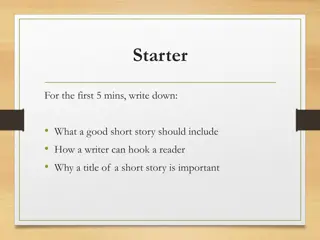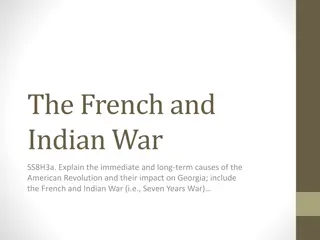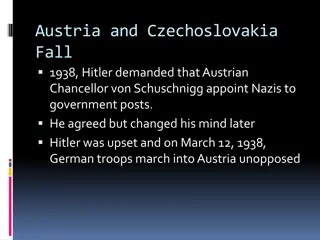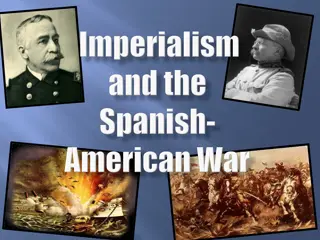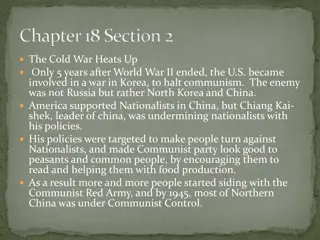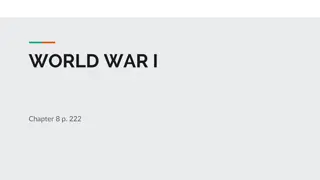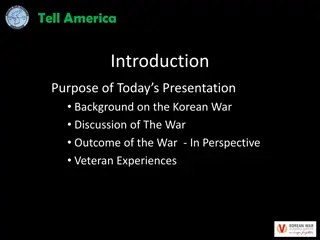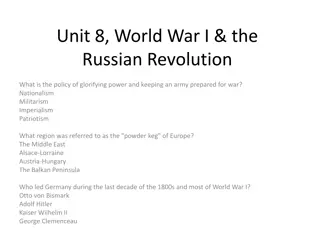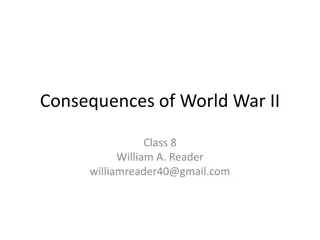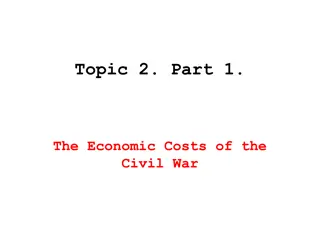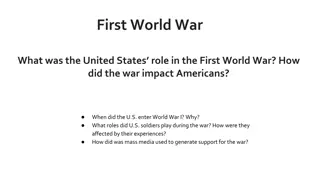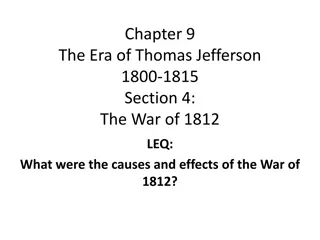Setting the Stage for World War 1
World War 1, also known as the Great War, began in Europe in 1914 and lasted till 1918. The conflict was fueled by four main causes: militarism, imperialism, alliances, and nationalism. Tensions heightened with the Balkan Powder Keg event and the ultimatum that led to the mobilization of troops across Europe in 1914.
Download Presentation

Please find below an Image/Link to download the presentation.
The content on the website is provided AS IS for your information and personal use only. It may not be sold, licensed, or shared on other websites without obtaining consent from the author. Download presentation by click this link. If you encounter any issues during the download, it is possible that the publisher has removed the file from their server.
E N D
Presentation Transcript
CHAPTER 27-WW1 Setting the Stage
WORLD WAR 1 Meaning Great War War to End all Wars Began in Europe in 1914 and lasted until 1918
4 MAIN CAUSES OF WW1: 1. MILITARISM Each country tried to have more weapons then the other Military gained more power Everyone prepared for war in Europe: New Weapons Warships Expanding armed forces
2. IMPERIALISM Desire for more land, wealth, and land colonies Surge of imperialism led to sharp rivalries in Europe. Germany: only could expand if we take away from others.
3. ALLIANCES Groups of nations organized against each other in an effort to maintain a balance of power around the world. Secret alliances that helped maintain peace for 20 years in Europe lead its creators into War.
4. NATIONALISM Feeling of deep loyalty of one s country Strong nationalistic competition had developed among France, Britain, Russia, Austria-Hungary, and Germany. National unrest within certain European countries with diverse population occurs:
BALKAN POWDER KEG June 28th, 1914: Archduke Ferdinand and wife visit Sarajevo (capital of Bosnia). Bosnia was province of Austria-Hungary had taken over in 1908 (Imperialism). Ferdinand was next in line to rule Austria-Hungary Empire. 19 year old Bosnia nationalist Gavrilo Princip assassinated Archduke and wife. Austria-Hungary believe Serbia government is behind murder and wanted to punish Serbs.
BEGINNING OF WAR: ULTIMATUM One party threatens harmful action if the demands it has made are not met. Austro-Hungarian ultimatum: 1. Serbian govt. must suppress all groups that opposed Austro- Hungarian govt. 2. Serbia must dismiss school teachers and ban books that did not support Austro-Hungary. 3. Serbia must dismiss govt. officials who spoke out against Austro- Hungary. 4. Austro-Hungarian officials must be allowed to participate in trials of those accused of assassination. Serbia accepted first three terms, not fourth. Austria-Hungary declared war.
MOBILIZATION OF EUROPE Readying troops for war August 1, 1914: Germany declared war on Russia Germany declared war on France two days later Belgium: was guaranteed neutrality. Belligerents: warring nations Germany wanted to cross Belgian territory and they did so. Britain declared war on Germany later that day.
EXPANSION Later in August, Japan entered the war on the side of Great Britain/France. Everyone at war except for Italy for 10 months. Secret treaty with allies: guaranteed share of spoils with Germany defeat May, 1915: Italy entered the war against Germany and Austria-Hungary October 1914: Ottoman Empire entered war with Austria-Hungary/Germany Ottoman Empire: Major control of waterway Russia s Black Sea bottled up Allies had trouble sending supplies Bulgaria: enter war in 1915 with Germany
WW1 SIDES: THE BELLIGERENTS Allied Powers: Central Powers: France Germany Great Britain Austria-Hungary Russia Ottoman Empire Italy Bulgaria United States (Eventually) Japan (Eventually)
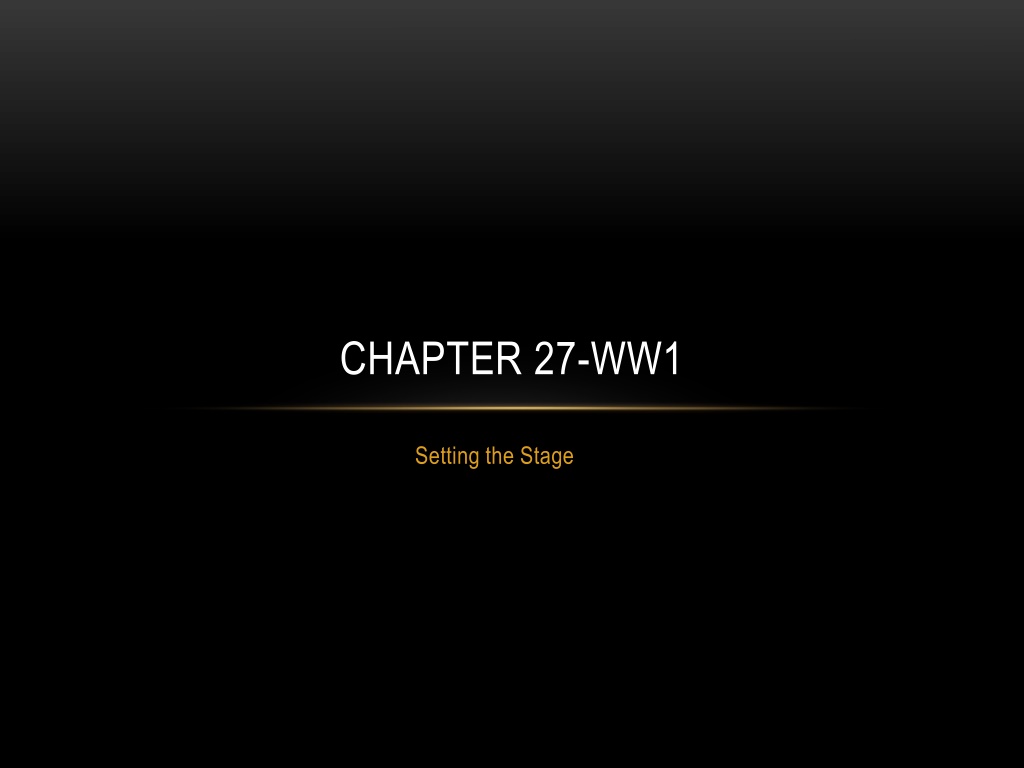
 undefined
undefined




![❤[PDF]⚡ Civil War Talks: Further Reminiscences of George S. Bernard and His Fel](/thumb/20551/pdf-civil-war-talks-further-reminiscences-of-george-s-bernard-and-his-fel.jpg)


